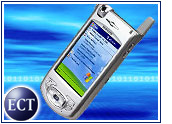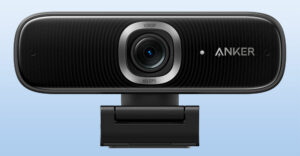
Looking to land its first major handset maker as a Windows Mobile software customer, Microsoft is reportedly involved in a deal with Motorola, the company that will build the new smart phone to be offered by French operator Orange.
The companies would not comment on the deal, but a briefing is scheduled for next week, and industry insiders told TechNewsWorld that the move was expected, especially given Motorola’s existing relationship with Microsoft and its software.
“The writing’s been on the wall for a while in a lot of ways,” Gartner research vice president Phil Redman told TechNewsWorld. “It’s really just been a question of how long before this happens.”
Departure from Symbian
Redman said the deal, which is expected to be announced next week, is likely to happen, especially as a result of Motorola’s departure from and announced sale of its stake in Symbian, a competing operating system for smart phones.
Redman said Motorola is also already using Windows Mobile in some industrial devices and has worked with Microsoft on its processing platforms. In addition, he said, the Pocket PC platform has become the standard for ruggedized devices, boding well for Microsoft software in smart phones from Motorola.
The analyst called Motorola’s support for Java and Linux on mobile phones “more hedging their bets,” adding that Gartner has not seen progress from Motorola in that area.
Nokia Next
While Microsoft has found a place for its Windows Mobile software with handsets from smaller manufacturers, Redman said a Motorola deal represents a “huge win” for the Redmond, Washington-based company. “It shows Motorola has much more confidence in Microsoft than in Symbian,” he said. “In the consumer market, they think Microsoft is going to be a bigger winner than Symbian.”
Redman also said Motorola’s worldwide reach, significant market share and influence over carriers also make the deal a boon to Microsoft, which is attempting to put its stamp on the mobile market just as it did in the PC sector.
A Departure for Motorola
For Motorola, the deal represents a departure from the enterprise market, where the Symbian OS was prominent, to the consumer market. Redman said the handset maker might have less control over its own final products as a result of working with Microsoft.
He pointed out that despite the advantages of a possible Motorola deal, Microsoft still has far to go, calling a deal with handset manufacturer Nokia the next step. “It’s a step in seeing Microsoft not just on every PC, but on every device,” he said of the Motorola deal.
IDC analyst Alex Slawsby told TechNewsWorld that mobile phones with increased power and capabilities are likely to win out over PDAs. “Mobile phones are likely to be the primary device,” Slawsby said. “PDAs that add telephony are not the most compelling, whereas mobile phones seem to be the form factor of choice.”
Slawsby said the addition of PDA-like capabilities to mobile phones is more likely to draw users than the convergence of devices in larger, PDA form factors.
Pocket PC Cumbersome?
However, Gartner research vice president Richard Stiennon told TechNewsWorld that increasingly complex and more powerful operating systems for handhelds — such as the Windows Pocket PC operating system — are too cumbersome for the special-purpose devices.
“Our advice to handheld manufacturers is to stay away from the handheld operating systems and stick to the model of a cell phone with stripped-down Java,” Stiennon said.
Referring to the ability of hackers to “do incredible things quickly” by targeting mobile devices, he said that a smaller-footprint operating system leaves less room for viruses and other threats.





















































